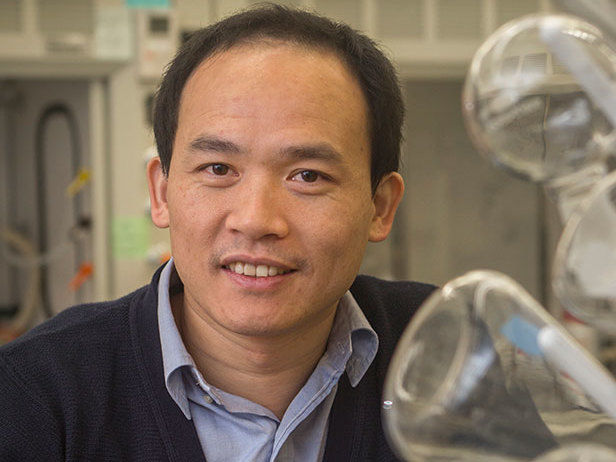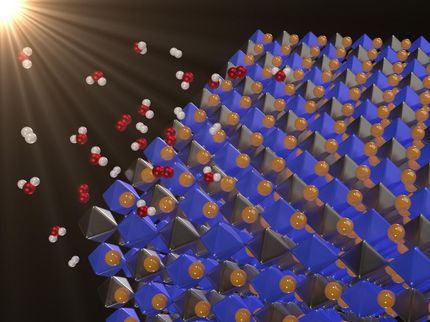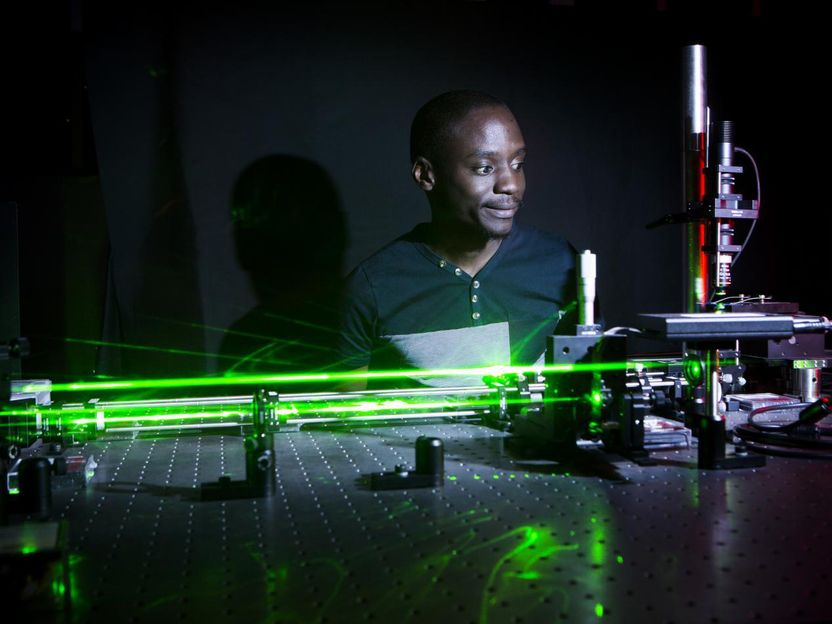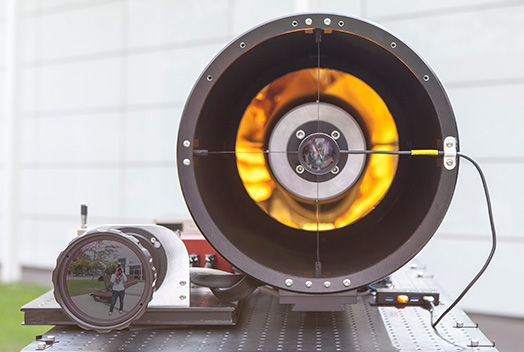New structure for promising class of materials discovered
Hollow metal halide perovskite nanocrystals with efficient blue emissions
Advertisement
Florida State University researchers have discovered a novel structure for organic-inorganic hybrid materials that shows potential for more efficient technologies.

Biwu Ma, professor of chemistry and biochemistry, published a new study on how a novel structure could create blue light in a type of material called a perovskite.
Florida State University
Professor of Chemistry and Biochemistry Biwu Ma and his team have published a new study in the journal Science Advances that explains how they created a hollow nanostructure for metal halide perovskites that would allow the material to emit a highly efficient blue light. Metal halide perovskites are a material that have shown great potential for photon-related technologies such as light-emitting diodes and lasers, but scientists have still been working to make them more efficient and effective.
"The fabrication of new generation color displays and solid-state lighting requires luminescent materials and devices of the three primary colors, red, green and blue," Ma said. "Although multiple ways of color tuning have been demonstrated for perovskites to achieve highly efficient green and red emissions, producing efficient and stable blue emissions is not trivial. This work provides a facile technique to prepare highly efficient blue emitting thin films."
Ma's research group at FSU has been working on the development and study of metal halide perovskites and perovskite-related materials for optoelectronics and energy applications since 2014. His team has pioneered scientific research on the structural and compositional control of metal halide perovskites and hybrids that would allow them to exhibit unique and useful properties.
In this case, researchers worked with a metal halide perovskite made of cesium lead bromide nanocrystals to build the structure. Previous nanostructures made from this material, including nanoplatelets, nanowires and quantum dots, had positive curvatures; this is the first negative curvature hollow structure of a metal halide perovskite that exhibits pronounced quantum size effects.
"We believe that our work would stimulate exploration of other nanostructures with remarkable and unique properties," Ma said.




































































